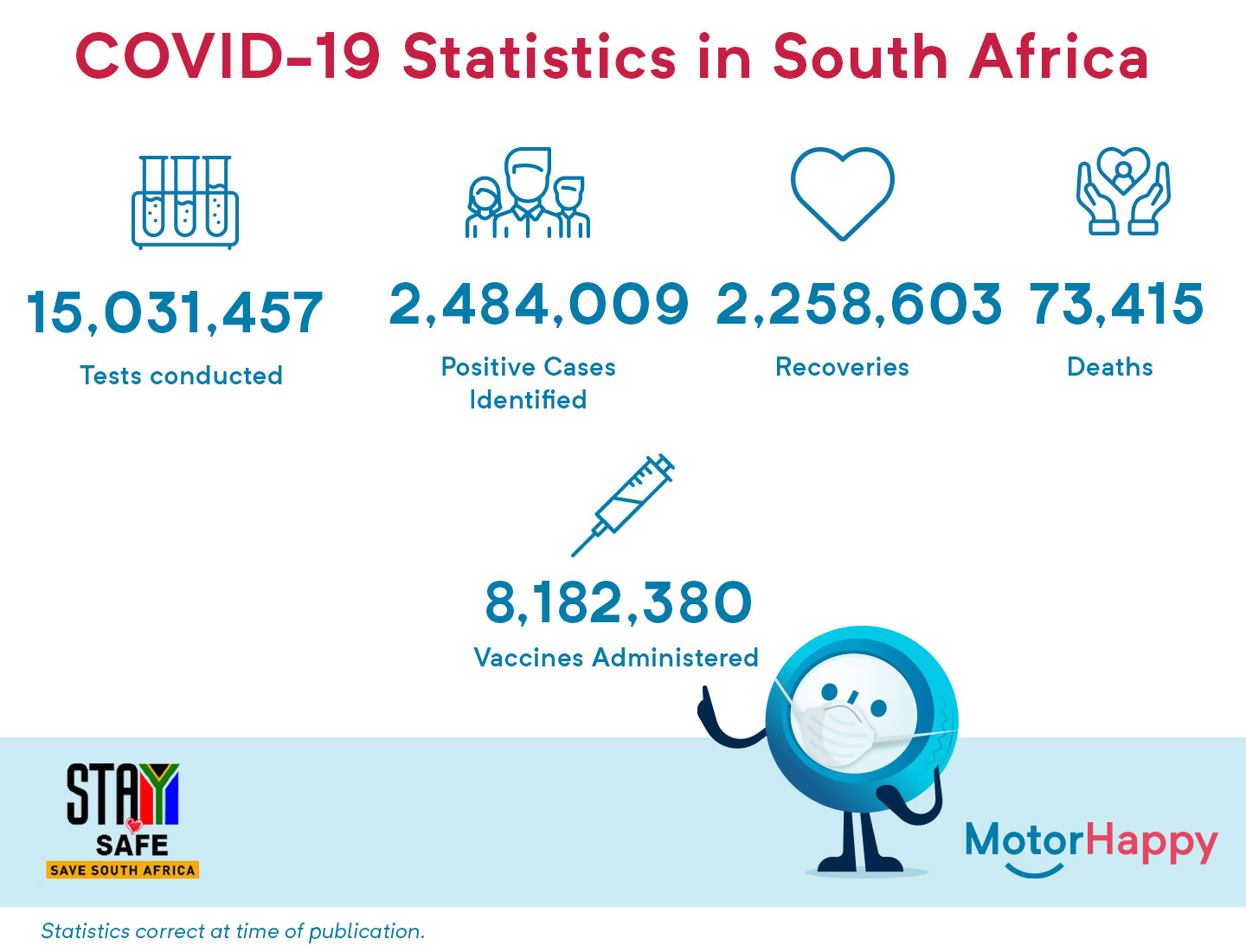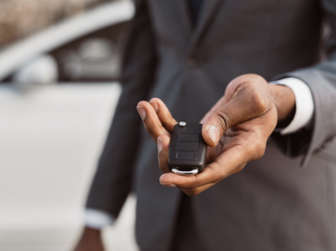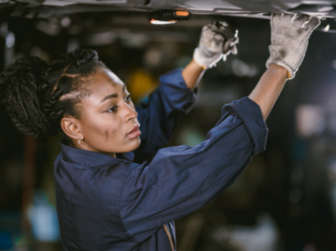As we begin to recover from the third wave of Coronavirus and the vaccination programme begins to gain momentum, we urge South Africans to remain vigilant and to take steps to protect themselves and others from the spread of the virus. This means staying home as much as possible, good cough and hand hygiene, using masks, etc.
Try as much as possible to only use your car for essential trips – unless, of course you are one of the champions of our society: the health workers, emergency personnel, security services and others who are helping to keep South Africa running during this unprecedented time.
When you do use your car, and if you’re carrying passengers, open windows to ensure better airflow in the vehicle. Better airflow will decrease the chances of viral transmission. It’s best to open all windows, but even opening only one window will positively impact airflow.
Remember to clean your car to reduce the risk of spreading the coronavirus. A recent study showed that most steering wheels are four times dirtier than a toilet seat. Pretty gross, right? And especially concerning when you consider how easily the Coronavirus spreads. It doesn’t matter if you’ve sanitised your hands – if you haven’t cleaned your steering wheel, the virus could be living there.

Before you start with disinfecting your car, you need to clean it first. Clean your car as you normally would, using standard car-cleaning materials or a gentle household cleaner.
When you’re ready to disinfect, use hand sanitizer or a disinfectant wipe if you have any available to you. Remember, a little goes a long way! If you can’t access wipes, regular soap and water will help clean the hard surfaces. However, do not use products with bleach, hydrogen peroxide or ammonia-based products to clean your car – these products could cause damage to vinyl and plastic.
If you are using regular soap and water to clean your car, remember that the 20-second rule for hand washing applies to your car too. You’ll need to spend some time cleaning your car, so the soap has time to break down the virus. Don’t scrub too hard and use a microfibre cloth to minimise the chances of scratching.
Focus on the areas you touch most often, like the steering wheel, interior and exterior door handles, gear lever, armrests, radio knobs, seat belts and the hand brake.
Be mindful of how much water you’re using, especially around your car’s electronics and on your car’s seats. Your cloth should not be dripping wet.
If you have leather seats, wipe them down with soap and water rather than using alcohol-based cleaners and make sure you clean the entire car’s cabin. When you’re finished, wipe down with leather conditioner to keep your seats hydrated.
Don’t forget to disinfect your keys too.

When you’re finished cleaning your car, wash your hands thoroughly to avoid bringing the virus into your home. When you go out and then get back into your car, disinfect your hands. Before you leave your car, disinfect your hands.
In short – washing and disinfecting your hands should be top of mind throughout the next few weeks.

You will want to know your car won’t let you down if you need to travel. If possible, make sure you have a full tank of petrol and other fluids such as windshield fluid and brake fluid are topped up.
During the lockdown, your car battery should be ok. Try to start your car at least once every two weeks – and take a short drive in your car if possible.

Limited edition Ranger StormTrak coming to SA
South Africa’s top 5 SUVs


